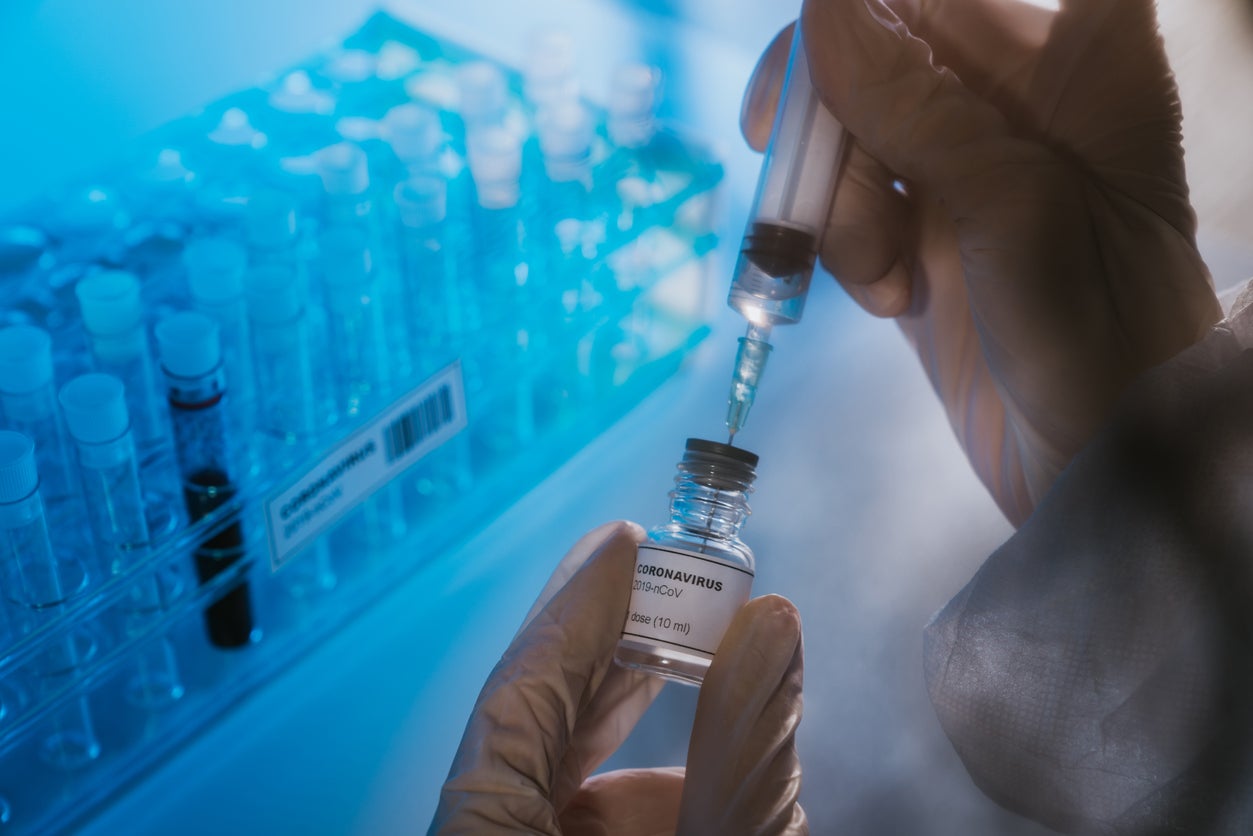Promising Covid vaccine in Australia abandoned after trial participants test false positive for HIV
Australia plans to start Covid vaccinations by March and finish by the end of 2021

Australia has abandoned the trial of a locally developed vaccine against Covid-19 after some trial participants showed false HIV positive results.
The vaccine was being developed by the University of Queensland (UQ) and biotech firm CSL, which was one of the four main candidates contracted by the Australian government for coronavirus vaccines.
According to a statement from the Australian government, the evidence from the University of Queensland’s phase one clinical trials showed the vaccine to be safe and that it produced a strong immune response able to neutralise the Covid-19 virus.
But it explained that as part of the vaccine’s design, the university’s researchers included a small fragment of a protein taken from the HIV virus, glycoprotein 41 (gp41), which was used to create a “molecular clamp” to hold the vaccine’s synthetic virus in place.
“Although the university’s researchers have confirmed the protein fragment poses absolutely no health risk to people who have taken the vaccine, they have identified a partial antibody response to it among trial participants. This has the potential to interfere with some HIV screening tests that look for these antibodies – leading to a false positive test result,” the statement said.
It was “this impact on HIV screening – and in the context of other promising vaccine candidates becoming available” that led to the Australian government’s decision, it said.
“Importantly, pathology testing that directly looks for the HIV virus has confirmed negative results for the trial participants who have taken the vaccine,” the statement clarified.
“While this is a tough decision to take, the urgent need for a vaccine has to be everyone’s priority,” said University of Queensland professor Paul Young.
CSL was originally contracted to produce 51 million doses of the UQ vaccine. As a result of abandoning its development, the drugmaker will now instead divert its resources to produce an extra 20 million doses of the vaccine developed by the University of Oxford and AstraZeneca.
“This will mean a total delivery of 53.8 million AstraZeneca vaccine doses in 2021, covering the whole of [the] population’s requirements,” the statement said.
The government also announced that it will purchase 11 million doses of a vaccine produced by US biotech firm Novavax, bringing the total for this vaccine to 51 million.
“This provides an additional whole-of-population vaccine for Australia if proven safe and effective,” the statement said.
The Australian government has secured more vaccines from other companies as well. It has an agreement with Pfizer/BioNTech for 10 million doses of its vaccine, which is scheduled for delivery in Australia in early 2021.
The Australian Government is also part of the international Covax facility that allows the purchase of over 25 million doses of a range of other potential vaccines.
Altogether, it means Australia has secured over 100 million units of vaccines and potential vaccines for its population of about 25 million. The government is expected to start the vaccination process in March 2021, and says it will complete it by the end of 2021.
Australia is among the countries that have emerged from the pandemic faster than other nations. According to the World Health Organisation, Australia has so far recorded 27,993 confirmed cases of Covid-19 with 908 deaths.
Subscribe to Independent Premium to bookmark this article
Want to bookmark your favourite articles and stories to read or reference later? Start your Independent Premium subscription today.

Join our commenting forum
Join thought-provoking conversations, follow other Independent readers and see their replies